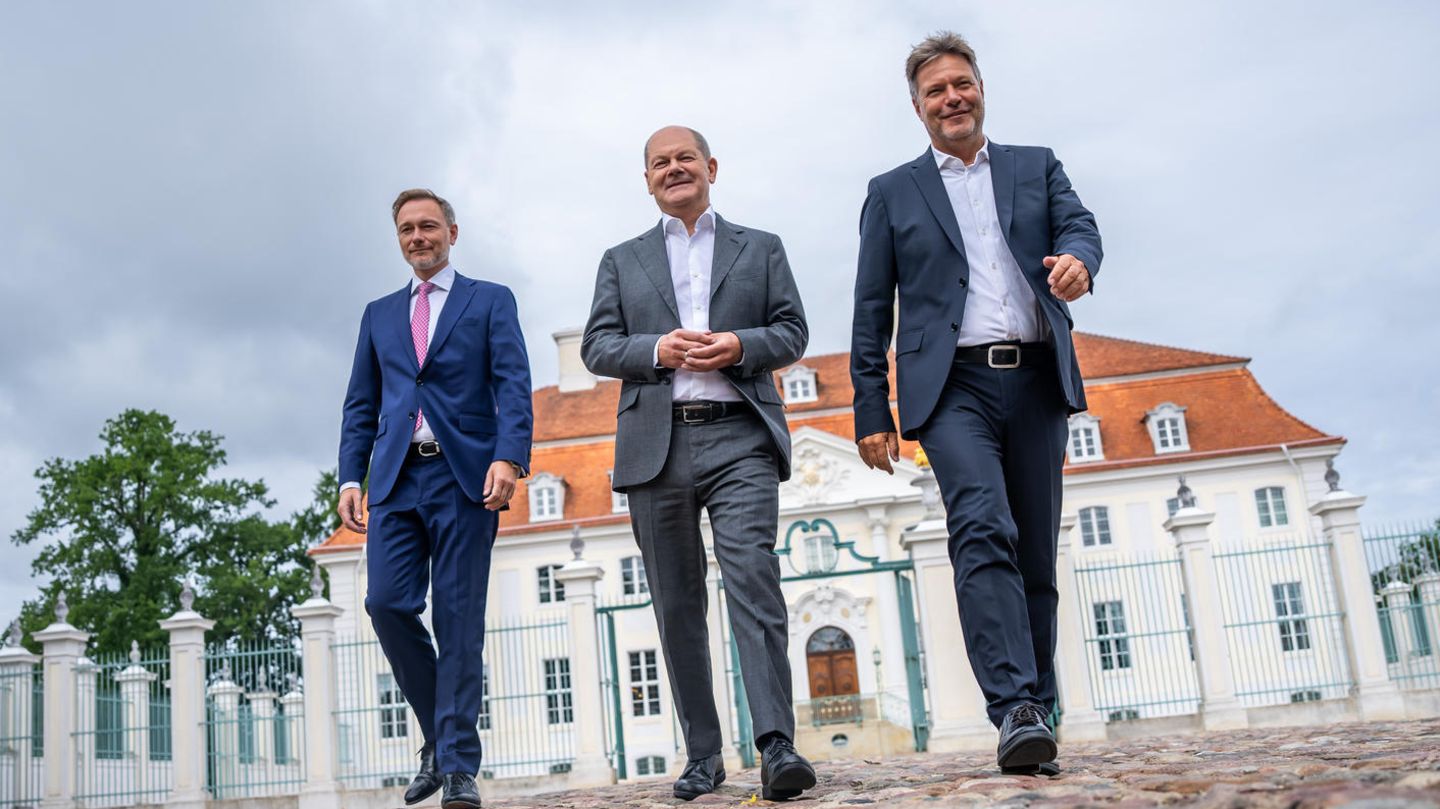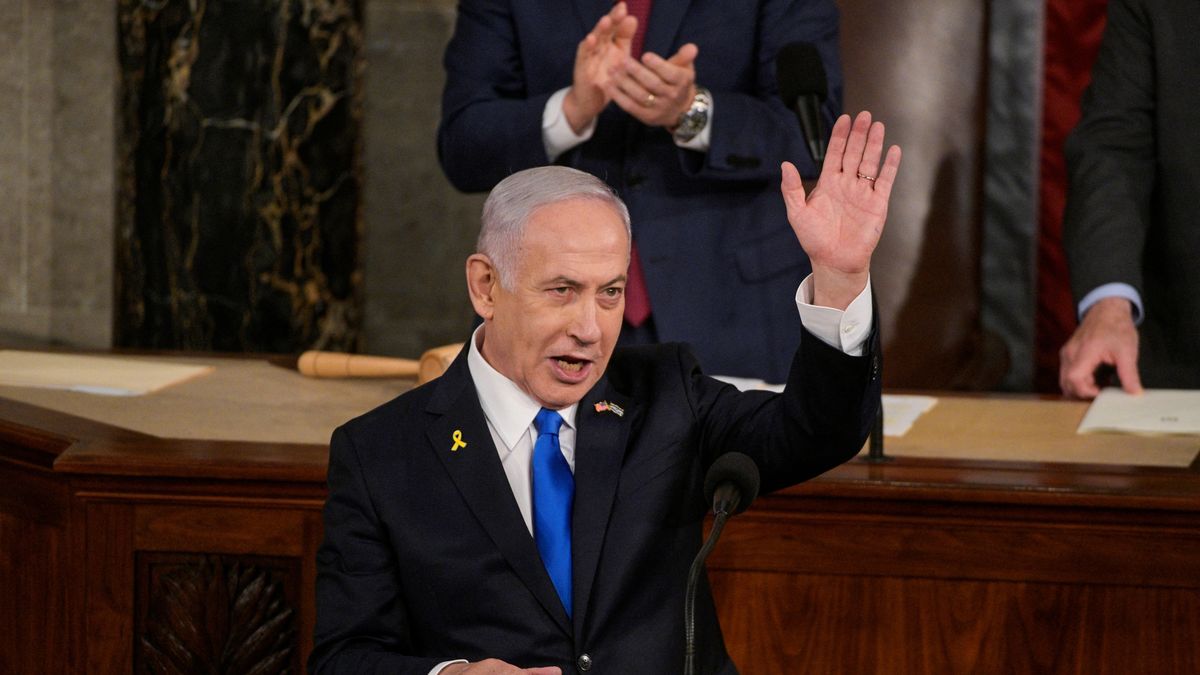After a long struggle, the traffic light leaders agreed on a federal budget for the coming year. But one thing remains unclear. The government still has to work out the details.
According to information from the German Press Agency, the leaders of the traffic light coalition have reached an agreement on the federal budget for 2024. Details will be announced later in the day, and a coalition committee is planned for Wednesday afternoon, as the German Press Agency learned.
Almost four weeks after the Federal Constitutional Court’s ruling, there is a solution to the budget crisis that has put the traffic light government under great pressure. Federal Chancellor Olaf Scholz (SPD), Vice Chancellor Robert Habeck (Greens) and Finance Minister Christian Lindner (FDP) have since discussed how a 17 billion euro hole in the budget for the coming year can be plugged.
It was also about how investments in climate protection and the modernization of the economy can be made possible despite the ruling. There is a lack of 60 billion euros in the so-called climate and transformation fund, which was already firmly planned for projects in the next few years. For the coming year alone, this will amount to 13 billion euros.
The Karlsruhe judges had declared a reallocation in the 2021 budget invalid and decided that the federal government was not allowed to reserve emergency loans for later years.
Bundestag decision probably in January
On Tuesday morning, Scholz, Lindner and Habeck met again in the Chancellery after they had postponed their conversation again the night before. They later brought in the traffic light faction leaders, spoke in their factions themselves and then retreated back to the Chancellery in a small circle. In the end, a night session was obviously necessary. The agreement came early Wednesday morning.
The traffic light government actually wanted to pass the budget for 2024 before the end of the year, but it was already clear last week that this would no longer be possible due to consultation times in the Bundestag and Bundesrat. Now, at least the Bundestag’s Budget Committee could potentially complete its deliberations before Christmas. However, that depends on how extensive the budget changes proposed by top politicians are. In January, the Bundestag could meet for budget week and decide on the budget, after which the Federal Council could give the green light.
A so-called provisional budget management would apply for that long. Then, for the time being, only expenses that are necessary to maintain administration and fulfill legal obligations are possible. In practice, however, the Ministry of Finance can authorize ministries to use a percentage of the funds in the not yet approved draft budget each month.
Debt brake? Save? Details remain open
It was not initially known what solution Scholz, Habeck and Lindner came to. Among other things, the idea of suspending the debt brake for 2024 was discussed. The Basic Law allows higher borrowing in special emergencies. The SPD and the Greens argued that such an emergency could be caused by the war in Ukraine.
Then it might be possible to finance limited aid payments for the country attacked by Russia through loans. Lindner had not been convinced recently. FDP parliamentary group leader Christian Dürr also emphasized on Tuesday that he did not see the legal requirements for declaring an emergency. The Union is considering going back to the Federal Constitutional Court if the debt brake is suspended.
Hard cuts in various areas were also discussed. The FDP particularly wanted to review social benefits and certain subsidies. The planned increase in citizens’ money, for example, was controversial. The basic child benefit, which is due to start in 2025, could also be postponed further. Chancellor Scholz ruled out cutting social benefits – but at the same time the SPD said that we would have to talk about the accuracy of the benefits.
The Greens advocated a reduction in climate-damaging subsidies, which, in their opinion, include tax advantages for diesel and agricultural and forestry companies. That would bring the state more revenue and therefore more leeway.
Source: Stern
I have been working in the news industry for over 6 years, first as a reporter and now as an editor. I have covered politics extensively, and my work has appeared in major newspapers and online news outlets around the world. In addition to my writing, I also contribute regularly to 24 Hours World.




